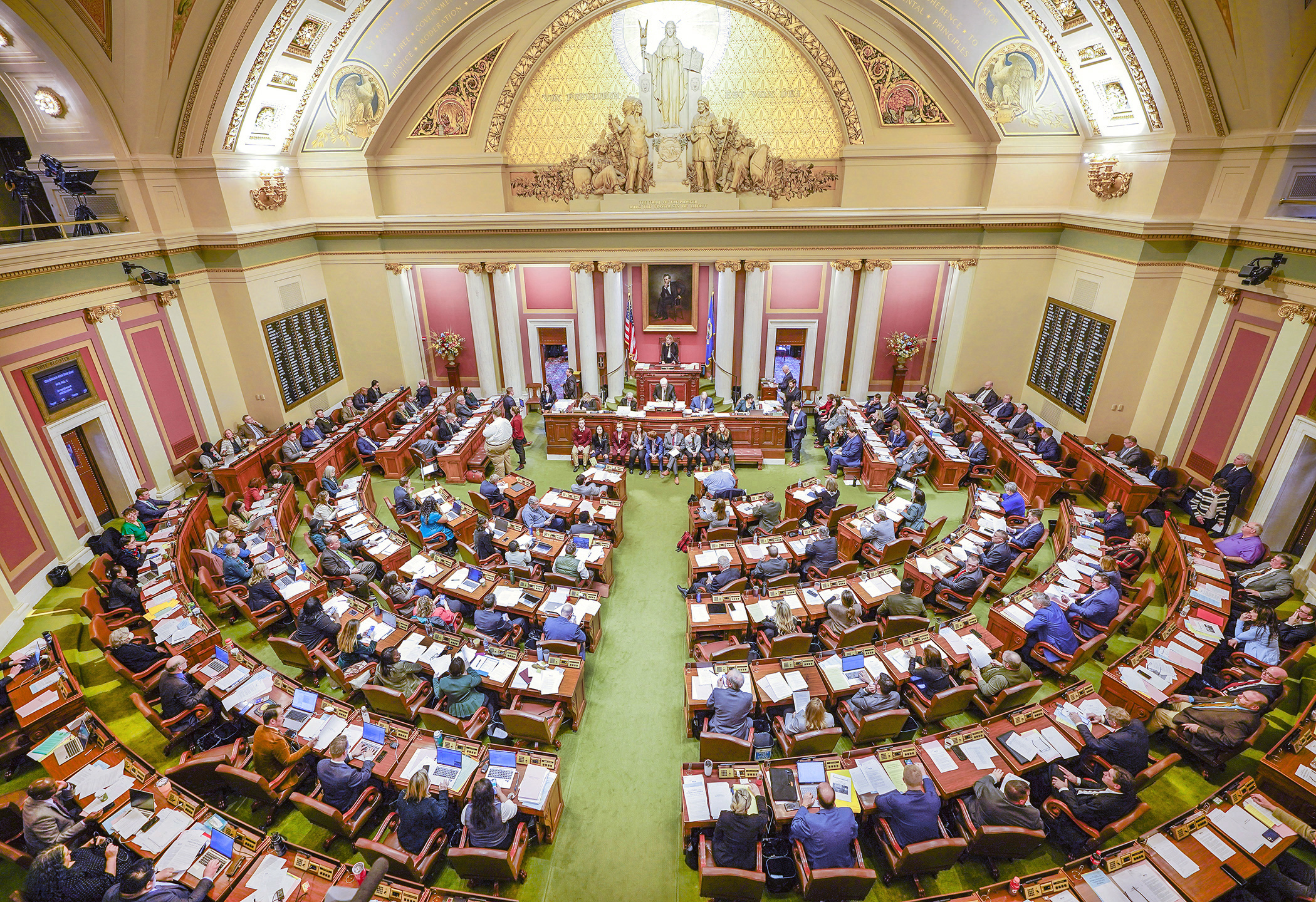House sends $1.37 billion jobs spending package to governor's desk
UPDATED -- 11:47 p.m.
Minnesota’s economy is still in recovery from the COVID-19 pandemic. There are over 200,000 job openings. And workers are striving for safer workplaces in numerous industries.
The jobs, economic development, labor, and industry finance bill aims to tackle these concerns in the coming biennium.
“[This bill is great] because it invests in Minnesotans, in the workforce, in small businesses, as well as protecting our labor,” said Rep. Hodan Hassan (DFL-Mpls). She and Senate President Bobby Joe Champion (DFL-Mpls) sponsor HF3028/SF3035*.
The House voted to repass the bill, as amended by conference, on a 70-61 vote Tuesday night. Having already cleared the Senate on a 34-33 vote earlier in the day, the bill now heads to the desk of Gov. Tim Walz.
[More: view the spreadsheet]
The spending package calls for $1.37 billion in state funding, with the biggest beneficiary being the Department of Employment and Economic Development. Appropriations to the department – to address the workforce shortage, reduce economic disparities, and provide geographically targeted aid – would total $693 million.
The largest chunk is for carrying out the PROMISE Act, which would distribute $125.3 million to “communities that have been adversely affected by structural racial discrimination, civil unrest, lack of access to capital, loss of population or an aging population, or lack of regional economic diversification.” Over 80% of these dollars would be directed toward the Twin Cities, mainly to help recover from the 2020 civil unrest.
A separate $5 million would be set aside for northern Minnesota counties economically harmed by the closure of the Canadian border during the COVID-19 pandemic.
 (House Photography file photo)
(House Photography file photo)And $500 million is due to be invested in the Minnesota Forward Fund in order to jumpstart the state’s economic competitiveness, with 70% of that money designated to match federal funds for microelectronic and bioindustrial manufacturing.
Explore Minnesota Tourism would have its mission and structure greatly refined and see its budget more than doubled to $62.3 million.
Governmental authorities overseeing employer-employee relations would receive the remaining $108.6 million, with much of the funding going to the Department of Labor and Industry to bolster workplace safety and implement major regulatory changes. Allocations in this realm would include:
- $30.9 million for the Workers’ Compensation Fund;
- $7.5 million for the Bureau of Mediation Services;
- $4.3 million for enforcement and worker outreach regarding a statewide mandate of earned sick and safe time benefits;
- $2 million for the ergonomics safety program; and
- $1.02 million for a newly created Nursing Home Workforce Standards Board.
Conferees included the following three policy initiatives but elected to provide no direct appropriations for their would-be enforcement:
- establishment of new worker safety requirements in the warehouse industry;
- instituting strengthened wage protections for construction workers; and
- updating the Packinghouse Workers Bill of Rights.
Other notable policy changes found in the bill would affect workplaces in the following ways:
- render nearly all non-compete covenants void and unenforceable;
- ban restrictive franchise agreements;
- make substantial modifications to the Public Employment Labor Relations Act, which governs collective bargaining and unionization rights in the public sector; and
- prohibit employers from compelling employee attendance at meetings that discuss religious matters, political issues, or arguments against unionization.
Republicans have taken strong exception to many provisions found in the conference committee report, arguing they will harm Minnesota’s economic competitiveness for years to come.
Rep. Isaac Schultz (R-Elmdale Township) said it is important for the Legislature to “make sure that we are not creating a stranglehold of government that limits investment from private job creators in this state.”
But found throughout the bill is the “heavy-handed burden of government upon job creators, from hospitals to nursing homes, from warehouse distribution centers to food processing and meatpacking facilities.”
Related Articles
Search Session Daily
Advanced Search OptionsPriority Dailies
Ways and Means Committee OKs House budget resolution
By Mike Cook Total net General Fund expenditures in the 2026-27 biennium will not exceed a hair less than $66.62 billion.
That is the budget resolution approved Tuesday by the House Ways...
Total net General Fund expenditures in the 2026-27 biennium will not exceed a hair less than $66.62 billion.
That is the budget resolution approved Tuesday by the House Ways...
Minnesota's budget outlook worsens in both near, long term
By Rob Hubbard It looks as if those calling for less state spending could get their wish, judging from Thursday’s release of the February 2025 Budget and Economic Forecast.
A state su...
It looks as if those calling for less state spending could get their wish, judging from Thursday’s release of the February 2025 Budget and Economic Forecast.
A state su...